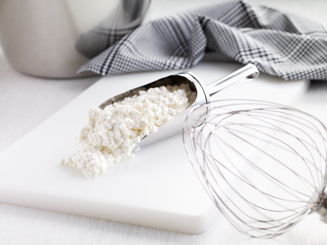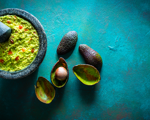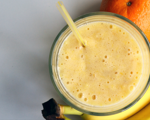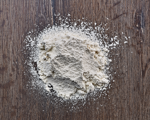
Whey is a complete protein. As the name suggests, this type of protein derives from whey, the liquid by-product of milk that separates from the curds when making cheese. This protein-rich liquid is then further processed and dried into a powder form, resulting in the supplement you may know as whey protein powder.
Types of whey protein
There are three main types of whey protein:
- Concentrate
- Isolate
- Hydrolysate
Concentrate is the most common type, usually containing 70-80 % protein. Isolate has been further processed and consists of about 90 % protein. Finally, hydrolysate has been pre-digested, so it gets absorbed quicker, and has the highest protein content, about 90-94 %.
What does whey protein do?
Whey protein, like other types of protein, contributes to the growth and maintenance of muscle mass. It also contributes to the maintenance of normal bones.
Foods with whey protein
Whey protein is a by-product of the cheese-making process. It is derived from milk and then processed into various types of powders that are used as supplements.
While it is usually consumed in its concentrated powdered form, which can be added to various dishes and drinks, you can also find it in protein bars, protein-enriched bakery items, meal replacement shakes, and ready-to-drink beverages.
Additionally, you can incorporate it into numerous recipes. From protein pancakes, muffins, and waffles to shakes and smoothies, the options are vast and provide a delicious way to boost your protein intake.
Check out our overview of high-protein foods and this guide to protein types to learn more.

Is whey protein gluten-free?
Yes, pure whey protein is naturally gluten-free. Gluten is a type of protein found in grains such as wheat, barley, and rye. Since whey protein is derived from milk, it does not contain gluten.
However, be cautious as not all supplements are guaranteed to be gluten-free. Some may contain additives, flavours, or other ingredients containing gluten. So, it is always a good idea to read the product labels carefully if you want to avoid gluten.
Does whey protein have lactose?
Yes, whey protein originates from milk, and therefore it contains lactose, but the amount varies depending on the type of whey protein. We explained the three main types (concentrate, isolate, and hydrolysate) in a paragraph above.
Whey concentrate contains a differing amount of lactose depending on the specific product, but generally more than the two other types.
As isolate has been processed further, more lactose has been removed from this type.
The hydrolysis process causes most, and in some cases all, of the lactose to be removed.
Therefore, if you are lactose sensitive, isolate or hydrolysate may be better options for you, but always check the product label and consult your physician if you need advice.
Is whey protein animal or plant-based?
Whey protein is considered an animal-based product because it originates from milk. The process starts with the collection of cow's milk, which is used to produce cheese. During this process, the milk is curdled (usually by adding an enzyme called rennet), causing it to separate into solid curds and liquid whey.
The curds are used to make cheese, while the liquid is a by-product that contains whey. The liquid undergoes several filtration steps to remove fats and carbohydrates. What remains is a highly concentrated solution that is then dried to create a powder.
Depending on the desired product, this powder can be processed further into insolate or hydrolysate. However, there are plant-based protein powders available on the market, such as pea protein, rice protein, and soy protein.
Related Articles
Want to understand different types of protein? Here's everything you need to know:










































